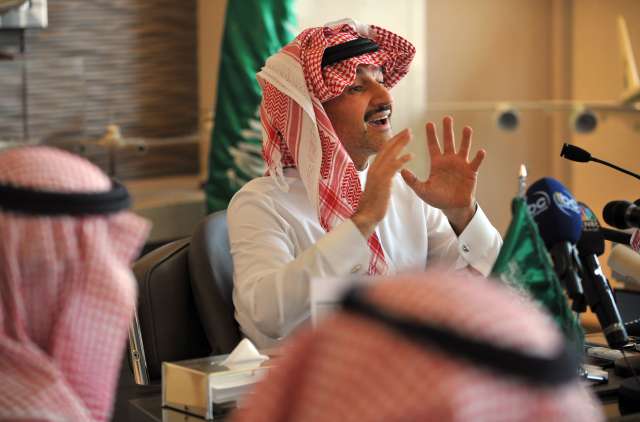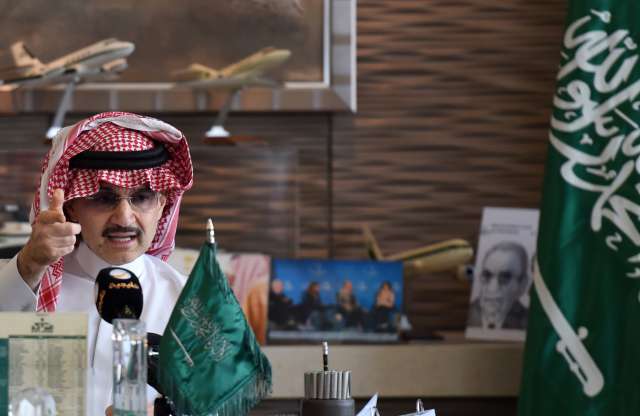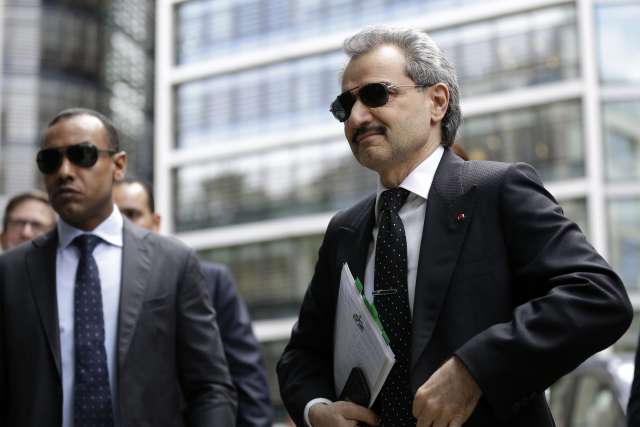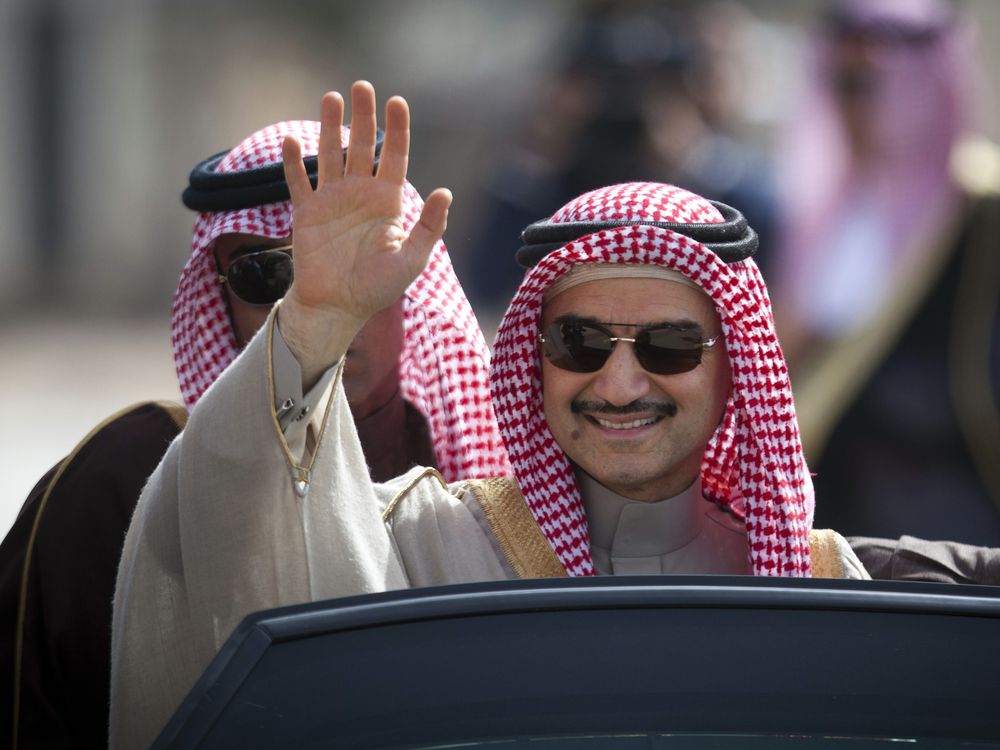The text belongs to: National Post.
The government says the arrests are part of a wider effort to increase transparency, accountability and good governance.
RIYADH, Saudi Arabia — Billionaire Saudi Prince Alwaleed bin Talal was released on Saturday from the luxury hotel where he has been held since November, according to three of his associates, marking the end of a chapter in a wide-reaching anti-corruption probe that has been shrouded in secrecy and intrigue.
The campaign, however, could still be far from over, with more arrests possible and aftershocks yet to materialize.
The prince, 62, had been the most well-known and prominent detainee held at the Ritz-Carlton hotel in the Saudi capital, Riyadh, since Nov. 4, when his much younger cousin, Crown Prince Mohammed bin Salman, ordered the surprise raids against prominent princes, businessmen, ministers and military officers. Sending elite forces to arrest them in their homes, they were subjected to weeks of questioning that would result in many turning over significant financial assets.
Prince Alwaleed was among at least 11 princes detained in the probe, including two sons of the late King Abdullah. The government, however, has not named those detained nor discussed the specific allegations against them.

Hours before the arrests were made, the late King Abdullah’s son Prince Miteb was ousted from his post overseeing the National Guard, a powerful force that oversees key aspects of internal security and the security of the royal family. He was seen as a potential contender for the throne until his arrest in the sweep.
Critics say the crown prince, who is King Salman’s son and heir, has used the purported anti-corruption campaign to sideline potential rivals and critics, and seize control of influential businesses run by many of the scions detained in the probe. The arrests also raised concerns over increasing totalitarianism, along with disarray and resentment from within a royal family whose unity has been the bedrock of the kingdom.
The government says the arrests are part of a wider effort to increase transparency, accountability and good governance.
Still, the arrests were unprecedented in a country where royals and their associates have long been seen as operating above the law.

The surprise arrests also worried international investors, particularly as the Saudi government prepares to list oil giant Saudi Aramco on the stock market sometime this year or next. Many investors see Prince Alwaleed’s arrest as a bellwether for doing business in a country where the potential for future arrests remains. His release comes as world leaders and major investors convene at the World Economic Forum in Switzerland.
Prince Alwaleed is chairman of Kingdom Holding Company, which has investments in several Western companies such as Twitter, Lyft, Citibank and marquee hotels like New York’s Plaza Hotel, London’s Savoy Hotel, and the Four Seasons George V Hotel in Paris. The prince also has significant holdings in Apple and is majority owner of the popular Rotana Group of Arabic channels.
Prince Alwaleed’s associates, who include a relative, told The Associated Press that his terms of release were not immediately known. They said he had returned to his palatial home in Riyadh’s al-Fakhariya neighbourhood. The associates spoke on condition of anonymity because of the sensitivity of the matter.
There has been no official comment on his release.

“There’s a high possibility that this marks the end of nearly the first stage and that more arrests will happen later this year,” said CEO and founder of risk consulting firm Gulf State Analytics Giorgio Cafiero.
The crown prince, who has consolidated power rapidly since his father’s ascension to the throne three years ago, has demonstrated “he’s not afraid to step on some toes,” Cafiero said. “It’s not very clear how members of the royal family can counter him at this point,” he added.
Private U.S. intelligence firm Stratfor said the arrests went beyond targeting corruption and were used as a means of reworking patronage networks in favour of Prince Mohammed as he seeks an even greater centralization of his power.
“Should the released detainees cross the crown prince again — perhaps by showing disloyalty to his vision through their business decisions — they could well find themselves back in fetters,” a Stratfor brief said, adding that there may be a strain on the relationship between the released detainees and the government.
Earlier this week, Saudi Attorney General Saud al-Mojeb was quoted in local media as saying some 90 detainees had been released after agreeing to settlements involving cash, real estate and other assets. If a financial agreement can’t be reached, remaining detainees will be moved to prison, prosecuted and could face six months or more in jail. Around 350 people in total have been questioned.
Video belongs to: Al Jazeera.



